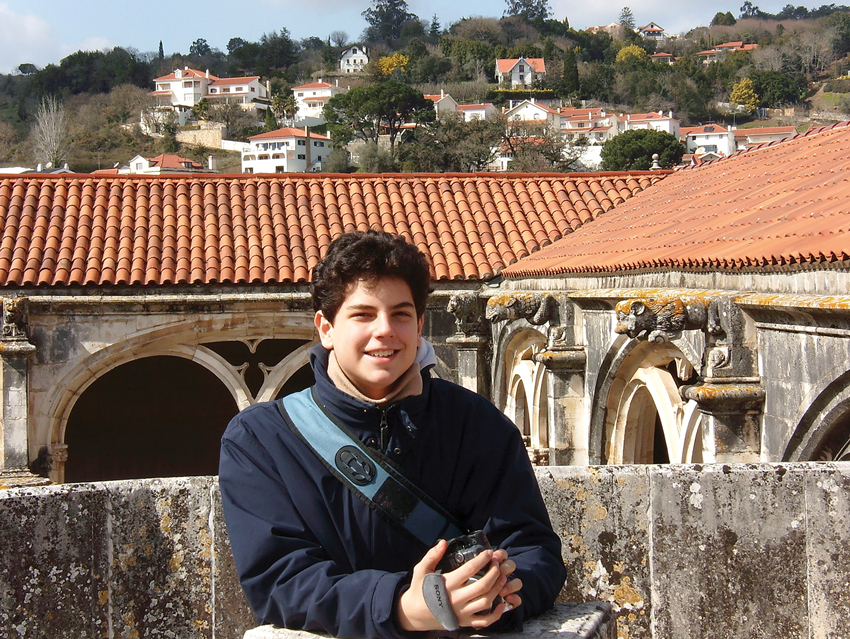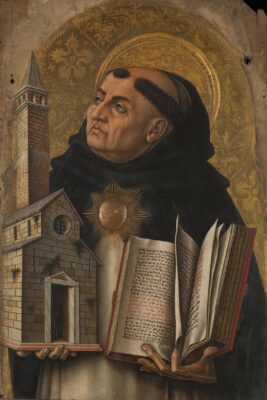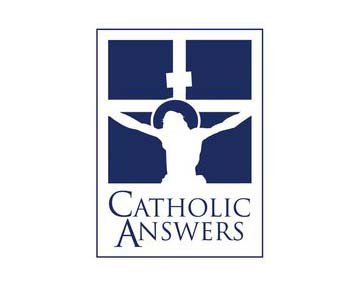Saints and the Eucharist
St. John Paul II
“…Let Jesus present in the Blessed Sacrament speak to your hearts. It is he who is the true answer of life that you seek. He stays here with us: He is God with us. Seek him without tiring, welcome him without reserve, love him without interruption: today, tomorrow, forever!”
Bl. Carlo Acutis
“You put yourself in front of the sun you get a tan…but when you put yourself in front of Jesus in the Eucharist you become a saint.”
Please click on one of the buttons below to read more about the stories.
Blessed Carlo Acutis

Who is Carlo Acutis
Despite what one might think of a young man who was a candidate for the honors of the altars, Carlo was an absolutely normal boy, like most of his peers, but with an absolutely special harmony thanks to his great friendship with Jesus.
In addition to the main duties of his status as a student and son, he managed to find time to teach catechism to children preparing for First Communion and Confirmation; to volunteer at the soup kitchen of the Capuchins and the Sisters of Mother Teresa; to help the poor living in his neighborhood; helping struggling children with their homework; doing apostolate work with the Internet; playing the saxophone; playing soccer; designing programs with the computer; having fun with video games; watching detective movies and making home movies with his dogs and cats.
“Always be united with Jesus, this is my life program,” he wrote when he was only seven years old. And he has been faithful to this program ever since until his departure for Heaven which took place between October 11 and 12, 2006 at the San Gerardo Hospital in Monza.
From an early age Carlo always showed a great attraction to “Heaven. “By a special circumstance, given his uncommon maturity in the things of Faith and his great love for the Sacrament of the Eucharist, Carlo was allowed to receive his First Communion when he was only seven years old. Since then, he has never missed his daily appointment with Holy Mass and some Eucharistic adoration either before or after Mass and the daily Rosary.
Carlo writes that when “you put yourself in front of the sun you get a tan… but when you put yourself in front of Jesus in the Eucharist you become a saint.”
For Carlo, “the Eucharist is his highway to Heaven,” and also the most powerful means of becoming a saint quickly.
Famous is his phrase, “Everyone is born an original but many die as photocopies.” In order not to die as a photocopy Carlo draws from the source of the Sacraments, which for Carlo are the most powerful means to grow in virtues, effective signs of God’s infinite mercy for us.
Thanks to the Eucharist Carlo heroically was strengthened in the virtue of fortitude, which gave him that courage common to all saints, to always go against the tide and oppose the false idols that the world constantly proposes to us.
The Eucharist also nourished in him a very strong desire to tune in constantly to the voice of the Lord, and to live always in His presence. In doing so, Carlo succeeded in bringing that way of life learned in the school of the Eucharist: being between school desks, in the pizzeria with friends or in the field for the soccer game, or using the computer, becomes living out the Gospel.
Carlo managed in an extraordinary way, while living an ordinary existence like that of so many, to dedicate his life, moment by moment, to the highest goal to which all men are called: eternal bliss with God.
Carlos, “the lover of God,” experienced this strong presence of the divine in his earthly life and tried in every way to generously pass it on to others as well, and to this day, he continues to intercede so that all may put God first in their lives and say as Carlos did, “Not I, but God“; “Not self-love, but the glory of God“; “Sadness is looking at oneself , happiness is looking at God.”
Carlo’s Time line
Please click on the year, to find out more…
- He was born on 3 May in London at the “Portland ” clinic.
- On 18 May he receives the Sacrament of Baptism in the presence of his paternal and maternal grandparents, his aunt Adriana and his great-grandmother Adriana in the Church of Our Lady of Dolours.
- On 8 September, Carlo returns to Milan with his parents, who were in London for work obligations.
he attends the local public kindergarten, Parco Pagani, in Milan.
He begins elementary school at San Carlo Institute, but three months later, due to practical reasons, he transfers to the Tommaseo Institute run by the Sisters of Saint Marcellina, where he completes his elementary and middle school years.
On 16 June, having just turned seven, he receives his First Communion at the Convent of the Romite Sisters of Saint Ambrose in Perego
On 24 May he receives the Sacrament of Confirmation in his parish church, Santa Maria Segreta.
September he begins high school at the Jesuit run Leo XIII Institute.
- On Monday, October 2nd, Carlo falls ill. At first it appears to be just an ordinary flu.
- On Sunday, October 8th, Carlo’s condition dramatically deteriorates and he is taken to De Marchi Clinic in Milan where he is diagnosed with M3 acute leukemia.
- On Monday, October 9th, he is transferred to San Gerardo Hospital in Monza.
- On Tuesday, October 10th, Carlo requests to receive the Sacrament of the Anointing of the Sick and Holy Communion, certain that he would shortly die.
- On Wednesday, October 11, 2006, Carlo falls into a coma from a brain hemorrhage brought on by the M3 acute leukemia. Doctors declare him dead at 5:00 pm when all his brain activity ceases. The parents are unable to donate his organs to a young transplant patient because Carlo’s organs are compromised by the leukemia.
- On Thursday, October 12th, at 6:45 am Carlo’s heart stops beating. This is the time of his legal death.
- The funeral takes place on Saturday, October 14th, at Santa Maria Segreta Church. The Church is overcrowded with so many people that many have to remain outside.
In January Carlo’s body is transferred from Ternengo Cemetery in Piedmont to a cemetery in Assisi as Carlo had requested.
On October 12th, the cause for Carlo’s Beatification and Canonization is officially opened and he becomes a Servant of God.
On May 13, the Holy See’s Nihil Obstat approves Carlo’s Cause for Beatification and Canonization.
On November 24th, in the presence of Cardinal Angelo Scola, the Diocesan level for the Cause for Beatification and Canonization of the Servant of God Carlo Acutis, ends at the Archbishopric of Milan.
On July 5th, Pope Francis declares Carlo Venerable.
- On January 23, Carlo’s body is exhumed.
- On April 6th, Carlo’s body is translated to the Shrine of Renunciation in Assisi.
On October 10th, Carlo is beatified in Assisi.
http://www.carloacutis.com/en/association/chiecarloacutis
St Thomas Aquinas
“The Eucharist is the sacrament of love: it signifies love, it produces love. The Eucharist is the consummation of the whole spiritual life.”

Please click presentation mode to view in full screen.
Who is St. Thomas Aquinas
In the Lives of the Saints, by Alban Butler, it is written that ST. THOMAS was born of noble parents at Aquino in Italy, in 1226. At the age of nineteen he received the Dominican habit at Naples, where he was studying. Seized by his brothers on his way to Paris, he suffered a two years’ captivity in their castle of Rocca-Secca; but neither the caresses of his mother and sisters, nor the threats and stratagems of his brothers, could shake him in his vocation. While St. Thomas was in confinement at Rocca-Secca, his brothers endeavored to entrap him into sin, but the attempt only ended in the triumph of his purity. Snatching from the hearth a burning brand, the Saint drove from his chamber the wretched creature whom they had there concealed. Then marking a cross upon the wall, he knelt down to pray, and forthwith, being rapt in ecstasy, an angel girded him with a cord, in token of the gift of perpetual chastity which God had given him. The pain caused by the girdle was so sharp that St. Thomas uttered a piercing cry, which brought his guards into the room. But he never told this grace to any one save only to Father Raynald, his confessor, a little while before his death. Hence originated the Confraternity of the “Angelic Warfare,” for the preservation of the virtue of chastity. Having at length escaped, St. Thomas went to Cologne to study under Blessed Albert the Great, and after that to Paris, where for many years he taught philosophy and theology.
The Church has ever venerated his numerous writings (Summa Theologica– Summary of Theology) as a treasure-house of sacred doctrine; while in naming him the Angelic Doctor she has indicated that his science is more divine than human. The rarest gifts of intellect were combined in him with the tenderest piety. Prayer, he said, had taught him more than study. His singular devotion to the Blessed Sacrament shines forth in the Office and hymns for Corpus Christi, which he composed. To the words miraculously uttered by a crucifix at Naples, “Well hast thou written concerning Me, Thomas. What shall I give thee as a reward?” he replied, “Naught save Thyself, O Lord.” He died at Fossa-Nuova, 1274, on his way to the General Council of Lyons, to which Pope Gregory X. had summoned him.
Reflection. —The knowledge of God is for all, but hidden treasures are reserved for those who have ever followed the Lamb.

